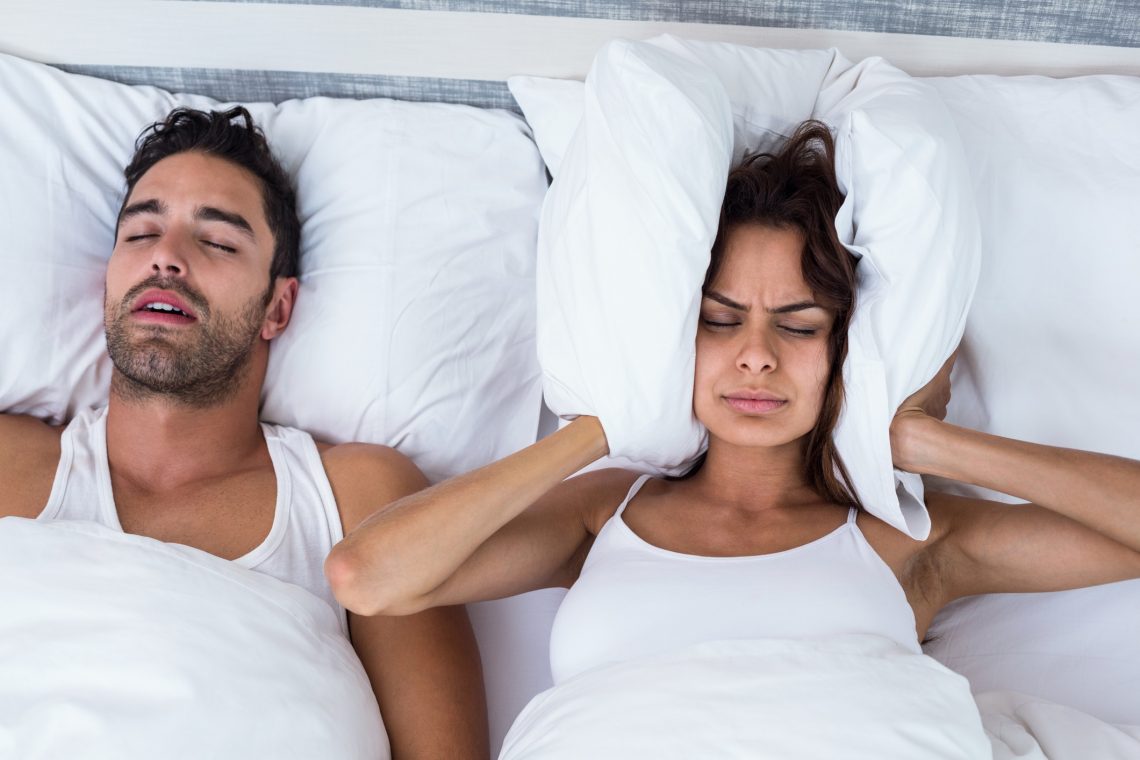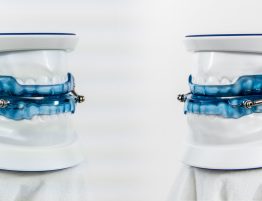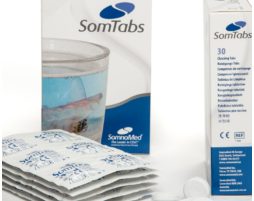
Snoring Causes and Cures
Does your partners snoring keep you up at night? Here are some of the most common snoring causes and cures so you and your partner can sleep peacefully.
The first step is to see what lifestyle modifications can be made to help stop or decrease your snoring. If the snoring continues there are other more invasive treatment options including surgery, continuous positive airway pressure (CPAP) or oral appliance therapy.
Let’s start with the easier snoring causes and cures options first:
Nasal Strips
They can provide relief for congestion due to colds, allergies, or a deviated septum and help reduce snoring that is caused by nighttime nasal congestion. Nasal strips may work to decrease the intensity of the snoring, but it will not make the snoring go away.
Losing Weight
Excess weight can add tissue to the neck that presses and restricts airways, leading to the vibrations that produce snores. People who gain a few pounds every year may develop sleep apnea. But if they gained the weight and then start snoring, losing the weight may help alleviate the snoring. Not to mention, losing excess weight carries several additional health benefits!
Avoid Alcohol
That nighttime glass of wine can turn you into a nighttime snore fest even if you finish it a few hours before bed. That’s because alcohol (as well as other sedatives like sleeping pills) cause the muscles in your throat to relax.
Sleeping on Your Side
This snoring causes and cures is more difficult than it sounds. Because there’s greater pressure on the throat when you’re lying on your back, sleeping to your side can quiet that snore. Back-sleeping snorers are probably used to frequent elbowing from their bed partners asking them to roll over. Many people have tried the trick of sewing a pocket in the back of their night shirt and putting in a tennis ball. Believe me when I say that will stop you from sleeping on your back, or sleeping at all, ouch! However, sleeping on your side is only a quick fix and not a long-term treatment for snoring.
Elevate Your Head
Propping up the head of your bed can help to take pressure off your airway so that it’s easier to breathe while you sleep. Make sure you prop up your upper body, not just your head. Raising just your head (like adding extra pillows) can actually have the opposite desired effect.
Sleep with A Humidifier
If your snoring is due to nasal congestion or allergies, and your nasal congestion or allergies are worse in dry air, sleeping with a humidifier might help.
Surgery
The goal of surgery is to create a more open airway, so obstructions are less likely to occur. Surgery can be quite invasive and sometimes worsen the apnea.
Oral Appliance Therapy
In someone with sleep apnea who either doesn’t respond to or doesn’t tolerate treatment with a continuous positive airway pressure (CPAP), ApneaGuard with SomnoMed, a type of mouthguard that moves the jaw forward can be very helpful. ApneaGuard is a custom-made oral appliance for the treatment of mild to moderate obstructive sleep apnea (OSA). ApneaGuard is worn during sleep to provide Continuous Open Airway Therapy (COAT) by moving the lower jaw slightly forward. This movement tightens the soft tissue and muscles of the upper airway, which prevents obstructive apneas while you sleep. With a sleep apnea diagnosis, many insurance companies cover the cost of Oral Appliance Therapy.
Don’t ignore snoring, especially if you have other health conditions or feel tired during the day. If none of these tips help, talk to your doctor or call to make an appointment with one of our sleep specialists.
READY TO WAKE UP WELL-RESTED?
If you are struggling with your CPAP or think you might have a sleep disorder contact ByeByeCPAP/Comprehensive Sleep Care Center at 703-679-0598 for a consultation and Say Hello to Sleep Again.




